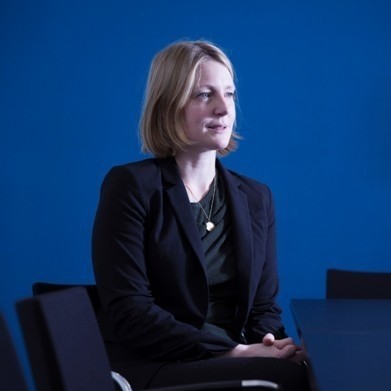
Name: Sophie Papa
Institution: King’s College London
Connection to the Academy: Starter Grants for Clinical Lecturers awardee
Dr Sophie Papa was awarded a Starter Grant in December 2011. In March 2014 she became a Senior Lecturer at King’s College London after being awarded a MRC Clinician Scientist Fellowship and is also currently an Honorary Consultant Medical Oncologist at Guy’s and St Thomas’ NHS foundation Trust.
What set you on the path to becoming a scientist?
I really enjoyed my PhD research. It made me ambitious for a career that had both clinical and laboratory facets to it. Combining both is so much more interesting and challenging for me than either in isolation.
Why did you apply for a Starter Grant and what appealed to you about the scheme?
I applied for a Starter Grant as I had a project I wanted to work on in the lab and I was relying on the generosity of my previous PhD supervisor to fund the work. I needed my own consumables fund to really be able to start to generate my own data. I was also encouraged to apply by senior colleagues. The award was enough to carry out both in vitro and in vivo work.
Can you tell us about your research?
Immune rejection of tumours has been appreciated for years, and we know that the immune system is able to recognise malignancy and fight against it. Failure of this defence is a key step in the development of cancer. I work on techniques to enable a patient’s immune system to see and kill cancer cells by inserting artificial genes into human immune cells. I am an investigator on a “first in human” trial of this therapy for head and neck cancer. The trial is the first of its kind and paves the way for future clinical translation of techniques for the direct benefit of patients. I am working to apply the same approach to prostate cancer.
How has your Starter Grant affected your career?
The Starter Grant was a key turning point in my career and made me believe that I could follow the clinical scientist pathway. It was the first grant I was awarded as a principal investigator and it enabled me to continue my research whilst completing my clinical training. Furthermore, on the back of the work I was doing under the Starter Grant I was able to secure funding from Prostate Cancer UK for a research assistant, and ultimately I was awarded a four year Clinician Scientist Fellowship by the Medical Research Council to progress my career as a clinical academic in oncology and immunotherapy.
What are the challenges one might face as a clinical academic?
It is very easy to be pulled away from your academic work by clinical challenges. The other great challenge, and a deterrent for many, is the lack of job security. You have to keep seeking funding for yourself and the team you want to build. This is a very time- and energy-consuming process. Furthermore, this all happens in your mid to late 30s when female clinical academics are statistically more likely to be starting families. Juggling these responsibilities is difficult. It is easy to start thinking you are doing a poor job at all three roles. I remember feeling like I was not productive during my Clinical Lectureship but, looking back, I really was. The research I conducted formed the foundation of my current position and the relationships I formed are now flourishing.
Do you have any words of advice for candidates with family and carer commitments when applying to the Starter Grant’s scheme?
My advice is to focus on the things that will help you as much as you can. For instance, apply for funding that supports people to work for you in the laboratory and build a team. Additionally, be the 'senior registrar' within the clinic - it is okay to pass on work that conflicts with your academic time. Lastly, remember you are good enough and if you haven’t written a grant before, get help from senior colleagues.
Finally, what skills would a researcher of the future need?
They would need a commerical eye, the ability to make real working collaborations and endurance.